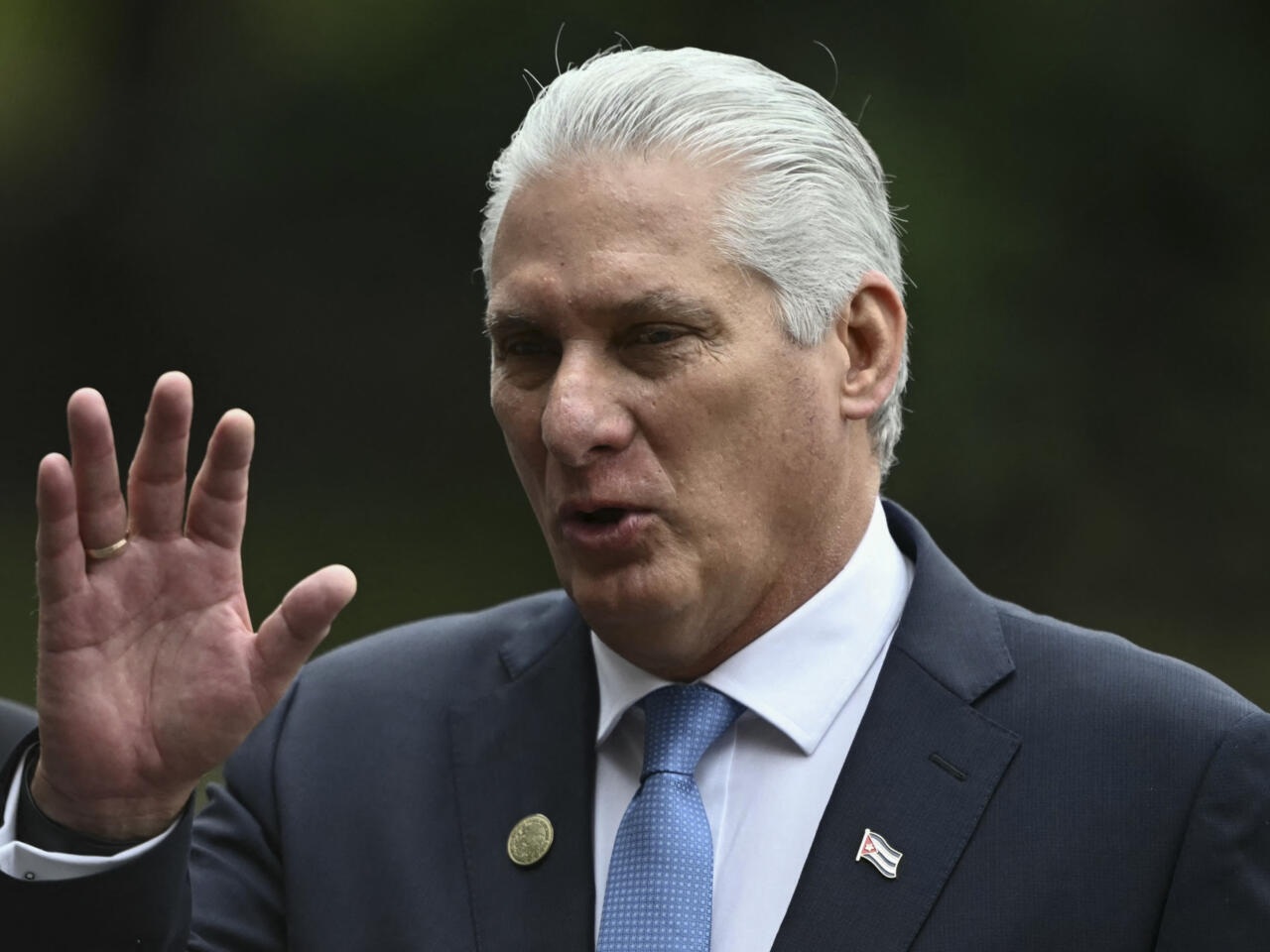On Friday, July 11, 2025, the United States government imposed its first-ever sanctions on Cuban President Miguel Díaz-Canel, citing his direct involvement in the Cuban regime’s brutal repression of its own people.
The announcement, made by U.S. Secretary of State Marco Rubio, marks a significant escalation in the Trump administration’s ongoing efforts to intensify pressure on Cuba’s government.
These sanctions include visa restrictions targeting Díaz-Canel and several other senior Cuban officials.
The officials include Defense Minister Álvaro López Miera and Interior Minister Lázaro Alberto Álvarez Casas.
It is reportedly for their roles in gross human rights violations during the July 2021 anti-government protests.
The sanctions coincided with the fourth anniversary of the historic protests that shook Cuba in July 2021.
This was when thousands of Cubans took to the streets to denounce severe shortages of basic goods, deteriorating economic conditions, and the government’s mismanagement.
These demonstrations, the largest since Fidel Castro’s 1959 communist revolution, were met with a harsh crackdown: hundreds were arrested, dozens injured, and one protester died.
The U.S. State Department condemned the Cuban authorities’ actions, emphasizing that the sanctions targeted “key regime leaders” responsible for the unjust detention and torture of demonstrators.
These include judicial and prison officials implicated in these abuses.
Secretary Rubio highlighted the stark contrast between the Cuban people’s suffering and the regime’s lavish spending on insiders.
“While the Cuban people suffer shortages of food, water, medicine, and electricity, the regime lavishes money on its insiders,” he said.
His comment underscores the regime’s priorities and disregard for its citizens’ welfare.
Rubio also accused Cuban authorities of torturing dissident leader José Daniel Ferrer, demanding “proof of life” and calling for the immediate release of all political prisoners.
According to U.S. estimates, around 700 individuals remain imprisoned for their participation in the 2021 protests.
Although human rights groups place the number between 360 and 420.
The crackdown on protesters and political dissidents has drawn widespread international condemnation.
Some detainees have been released after serving their sentences, while others, including Ferrer, were freed in January 2025.
This followed a Vatican-mediated agreement and the temporary removal of Cuba from the U.S. list of state sponsors of terrorism during the Biden administration.
However, Ferrer’s parole was revoked in April 2025, prompting renewed criticism from Washington.
This reinstated Cuba on the terrorism blacklist after Donald Trump returned to power.
In addition to visa restrictions, the U.S. Treasury Department added Havana’s newly inaugurated Torre K hotel.
It is a 42-story luxury establishment in a central area of the capital—to its restricted list.
This move aims to prevent U.S. dollars from indirectly funding the Cuban regime’s repression, as the government has invested heavily in tourism infrastructure despite the sector’s decline amid economic turmoil.
The Cuban government swiftly condemned the U.S. sanctions.
Foreign Minister Bruno Rodríguez denounced the measures on social media platform X, asserting that Washington “cannot bend the will of its people or its leaders.”
In May 2025, the Cuban Foreign Ministry summoned the U.S. envoy to Havana to protest what it described as interference in Cuba’s internal affairs.
Cuban officials have consistently attributed the 2021 unrest to a U.S.-orchestrated media campaign and the effects of decades-long American sanctions.
The July 2021 protests were unprecedented in scale and intensity.
Sparked by widespread blackouts and shortages, they reflected deep frustration with the government’s failure to provide basic necessities.
While the demonstrations were largely spontaneous and not organized by opposition groups, they exposed the fragility of Cuba’s social and economic fabric.
Government supporters and law enforcement responded with force, leading to numerous arrests and allegations of torture and mistreatment of detainees.
The U.S. sanctions reflect a broader policy shift under the Trump administration, which has adopted a more confrontational stance toward Cuba compared to the Biden administration.
The measures are part of a comprehensive strategy to isolate the Cuban regime diplomatically and economically.
It reportedly signals Washington’s continued support for the Cuban people’s aspirations for freedom and human rights.
In summary, the U.S. sanctions against President Miguel Díaz-Canel and other top Cuban officials represent a historic and forceful condemnation of the Cuban government’s human rights abuses.
This is particularly in connection with the violent suppression of the 2021 protests.
By targeting key regime figures with visa restrictions and financial measures, the U.S. aims to hold accountable those responsible for repression.
This is while signaling solidarity with the Cuban people’s ongoing struggle for basic freedoms and dignity.
The Cuban government’s defiant response underscores the enduring tensions between the two countries, as well as the complex challenges facing Cuba amid economic hardship and political unrest.







